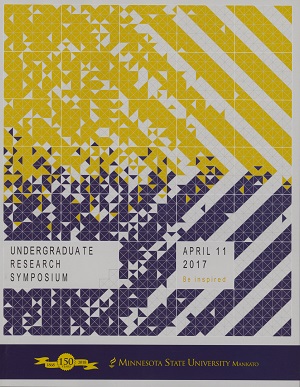Ergonomics Research and Building of a Driving Cockpit for FSAE
Location
CSU 203
Start Date
11-4-2017 2:10 PM
End Date
11-4-2017 3:20 PM
Student's Major
Automotive and Manufacturing Engineering Technology
Student's College
Science, Engineering and Technology
Mentor's Name
Shaheen Ahmed
Mentor's Department
Automotive and Manufacturing Engineering Technology
Mentor's College
Science, Engineering and Technology
Second Mentor's Name
Kuldeep Agarwal
Second Mentor's Department
Automotive and Manufacturing Engineering Technology
Second Mentor's College
Science, Engineering and Technology
Description
Ergonomics which is also known as Human Factors is an applied science of the interaction between products, equipment, systems, or processes and people who use them. Ergonomics plays a crucial role in designing a formula car by reducing driver's fatigue and improving driver's feedback within the rules of the FSAE (Formula Society of Automotive Engineering) competition. Each cockpit dimension is determined mathematically by using the given SAE anthropometric dimensions for the 5th percentile female and the 95th percentile male. Therefore, (1) calculating anthropometric dimensions of the participants, (2) creating an adjustable simulator, (3) testing posture conformance with the cockpit and driving efficiency, (4) building a CAD model for the seat, and (5) designing the actual driver's seat are crucial in the design process. The purpose of ergonomics in a daily driving car is to reduce the passenger's fatigue and improve the comfort, especially if they drive a long distance. However, the purpose of ergonomics in formula car is to find the best ergonomics posture for the driver while not violating the ergonomic principles and FSAE rules. I am still testing the adjustable simulator with participants. The results of the improved driving cockpit for FSAE would reduce driver's fatigue and improve driving performance in population ranges from 5th percentile female to 95th percentile male. It will assist the 2017-2018 FSAE Michigan competition under the design events and actual dynamic performance and reach the goal of being top 10 in the world's largest engineering competition.
Ergonomics Research and Building of a Driving Cockpit for FSAE
CSU 203
Ergonomics which is also known as Human Factors is an applied science of the interaction between products, equipment, systems, or processes and people who use them. Ergonomics plays a crucial role in designing a formula car by reducing driver's fatigue and improving driver's feedback within the rules of the FSAE (Formula Society of Automotive Engineering) competition. Each cockpit dimension is determined mathematically by using the given SAE anthropometric dimensions for the 5th percentile female and the 95th percentile male. Therefore, (1) calculating anthropometric dimensions of the participants, (2) creating an adjustable simulator, (3) testing posture conformance with the cockpit and driving efficiency, (4) building a CAD model for the seat, and (5) designing the actual driver's seat are crucial in the design process. The purpose of ergonomics in a daily driving car is to reduce the passenger's fatigue and improve the comfort, especially if they drive a long distance. However, the purpose of ergonomics in formula car is to find the best ergonomics posture for the driver while not violating the ergonomic principles and FSAE rules. I am still testing the adjustable simulator with participants. The results of the improved driving cockpit for FSAE would reduce driver's fatigue and improve driving performance in population ranges from 5th percentile female to 95th percentile male. It will assist the 2017-2018 FSAE Michigan competition under the design events and actual dynamic performance and reach the goal of being top 10 in the world's largest engineering competition.
Recommended Citation
Soh, Hee-Jin. "Ergonomics Research and Building of a Driving Cockpit for FSAE." Undergraduate Research Symposium, Mankato, MN, April 11, 2017.
https://cornerstone.lib.mnsu.edu/urs/2017/oral-session-11/4




